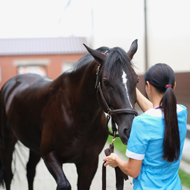BVA calls for ‘holistic approach’ to drug resistance
BVA says anthelmintics and ectoparasiticides should be targeted and based on diagnostics.
The British Veterinary Association (BVA) has called for a holistic and evidence-based approach to parasite control in grazing animals.
The organisation has launched a new policy position on the responsible use of parasiticides in grazing animals, providing best-practice guidance for veterinary organisations and livestock owners.
As part of its policy, the BVA has advised that the use of anthelmintics and ectoparasiticides in cattle, sheep, horses and goats should be more targeted and based on diagnostics. This strategic response is to replace the use of blanket treatments at certain times of the year, which can contribute to drug resistance.
The BVA describes drug resistance as a threat to the efficacy of all parasite groups. It has mainly been reported in gastrointestinal nematodes, liver fluke, with evidence of resistance also appearing in lungworm.
There is also evidence of parasiticides affecting invertebrate species in the environment, causing wider implications for biodiversity and soil health.
Organisations which represent veterinary surgeons, livestock owners and Suitably Qualified Persons (SQPs) are asked to work with members to implement the policy guidance. Species-specific organisations are also advised to work with members to incorporate holistic parasite control into their health plans.
BVA’s policy also calls for an increased focus on diagnostics and monitoring of annual sales data, as well as a more careful assessment of product’s environmental impact.
It recommends that the SQP Code of Practice is amended to increase its emphasis on evidence-based prescribing, with reclassification of POM-Vs a possibility if necessary. It calls for the Veterinary Medicines Directorate (VMD) to work with the National Office of Animal Health (NOAH) to restrict promotion of parasiticides, and work with SQP representatives to give prescribers access to prescription histories.
Organisations working to reduce the use of antimicrobials, such as the Responsible use of Medicines in Agriculture Alliance (RUMA), are also asked to include parasticides in their remit.
Elizabeth Mullineaux, BVA president, said: "As with dogs and cats, the treatment of grazing animals with parasiticides is one of the ways in which these products enter the environment, which is why it is vital they are used appropriately, when needed, and their impact monitored.
“Maintaining the safety and efficacy of parasiticides in the future is important not only for animal health and welfare but also human health and food security.“
Image © Shutterstock



 The BEVA has opened two new roles on its Nurse Committee.
The BEVA has opened two new roles on its Nurse Committee.